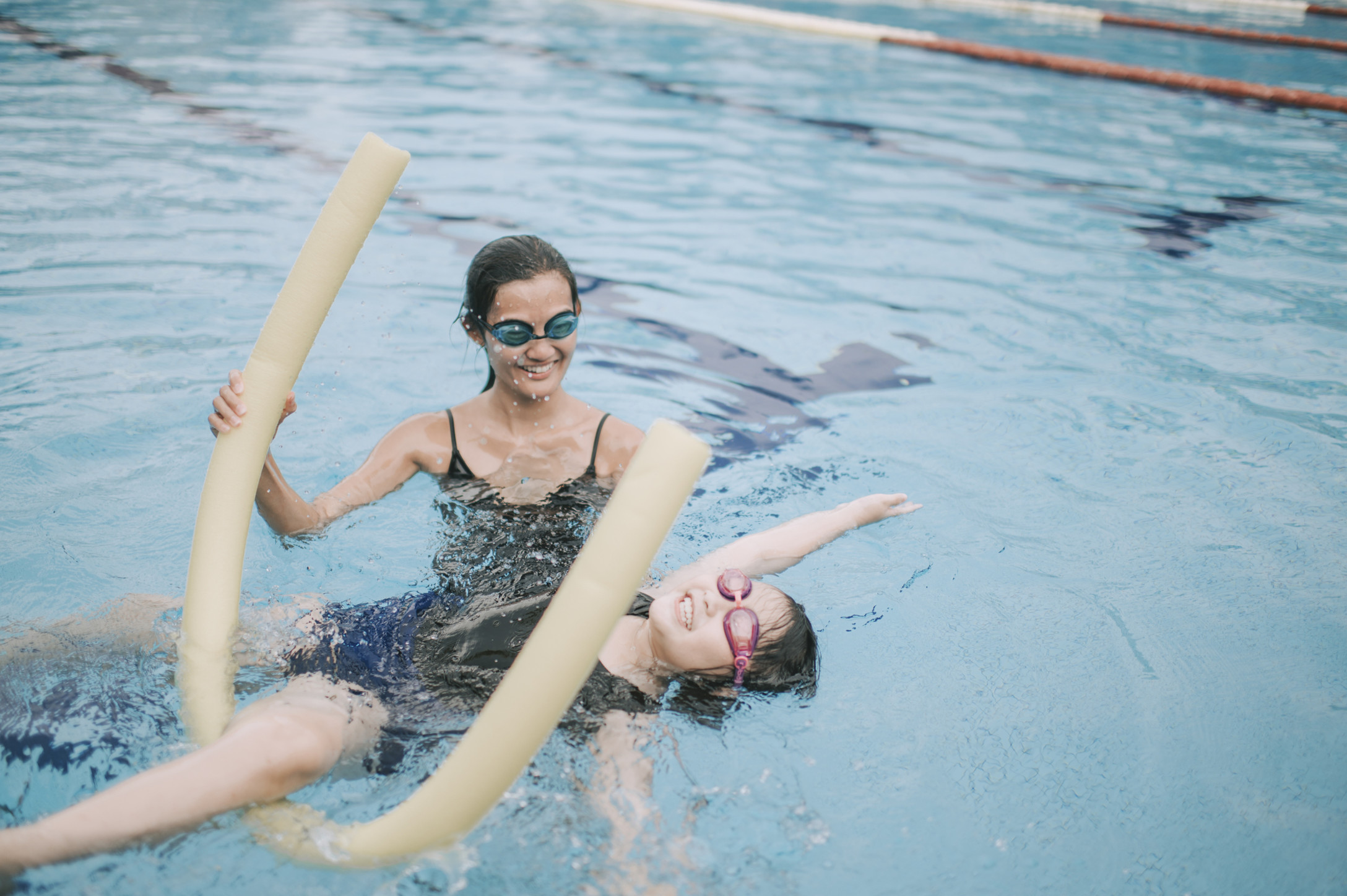
As a kid, I was an avid swimmer who loved the pool. So when the time came to register my daughter for swimming lessons, I was eager and excited.
From the nostalgic smell of the pool wafting up my nose, the humid air that dampens my hair to the plunging sounds of little divers, her first lesson brought me back to my childhood.
Week after week, I watched her grow more comfortable in the water. They played red light, green light, and ring around the rosy. They practiced blowing bubbles and jumping into the water with assistance.
I was confident in her skills and abilities. She paid attention to her instructor and carefully did what she was told. There were a few moments when the instructor would ask her to dip her head underwater and she would decline.
I convinced myself that she’d pass despite these few instances. So when enrollment opened up for the spring, I optimistically registered her in the next level.
At her last lesson, she hands me her wet report card. I skim through the long list of activities she had completed and there were two things that were not checked off: Bobbing and blowing bubbles underwater
I’m immediately disappointed. She looks at me with a wide smile and asks what the report card says. I muster up every bit of acting ability to hide my disappointment.
I’m not in the right state of mind to have this conversation without projecting my fears and insecurities. So I feign a weak smile and respond, “I’ll tell you when we get home. For now, you need to shower, change and have your snack OK?”
She nods and we head to the changerooms. As I’m waiting for her to get dressed, worries and anxious thoughts riddle my head.
I don’t want her to fall behind. She will probably be the oldest in her class. Now I have to waste money paying for her to repeat a level. I wanted to scold her but I stopped myself.
As a recovering perfectionist, I had the opportunity to do better with my daughter so she doesn’t get conditioned to believe she’s not good enough. I can create a safe learning environment where her self-confidence and resilience can flourish. Here’s how I’m doing that:
1. Go through her results together without judgment.
Taking on risks, new challenges, and experiences is an important value of mine. To reinforce this, I focused on having an open and honest conversation with her instead of coming down hard and laying judgment on her shortcomings.
So when we got home, we sat at the dining table and reviewed her report card together. Instead of focusing on the things she wasn’t able to grasp, I ran through the entire list from the beginning to the end. I validated how far she had come and how much she learned.
2. Cultivate a safe environment where failure is normal and expected.
Then we started talking about the tasks she couldn’t accomplish. I empathized with her and said: “I can see that bobbing and blowing bubbles underwater was hard for you. What was challenging about them?
She replied, “I’m scared because water will go in my eyes, ears, and nose.”
Then I responded: “Yes, it can be scary to try new things. It’s completely normal and expected to feel uncomfortable doing things we’ve never done before. No one starts off being awesome. But it’s important to learn them because it allows you to be ready for the next level. What would you do differently the next time?”
3. Give the right type of support.
Then she came up with some solutions. She suggested that she could close her eyes, take a deep breath and pinch her nose before going underwater. I encouraged her and agreed those were great ideas.
I wanted to give her the type of support that empowers her to take responsibility for her improvement and success. This meant letting her fail and not solving the problem for her, but I didn’t want to completely withdraw from her learning process. It’s giving her the tools, coaching her through solutions, and teaching her how to recognize when she’s struggling and what to do to overcome it.
4. Share my stories of when I’ve overcome challenges.
To reinforce the positivity of learning from mistakes, I shared with her a story of when I didn’t pass a swimming level. I couldn’t master the backstroke but I kept trying even though it was frustrating and hard.
Putting in effort, seeing my progression, and passing the level the second time made me feel a great sense of accomplishment. It makes it less scary to try something new because I know it’s not the end of the world if I don’t get it right the first time.
And as she gets older and experiences more setbacks, I plan to share more stories of how I overcame challenges, rolled with the punches, and landed on my feet. Sometimes, it takes going underwater before reaping our gains.




